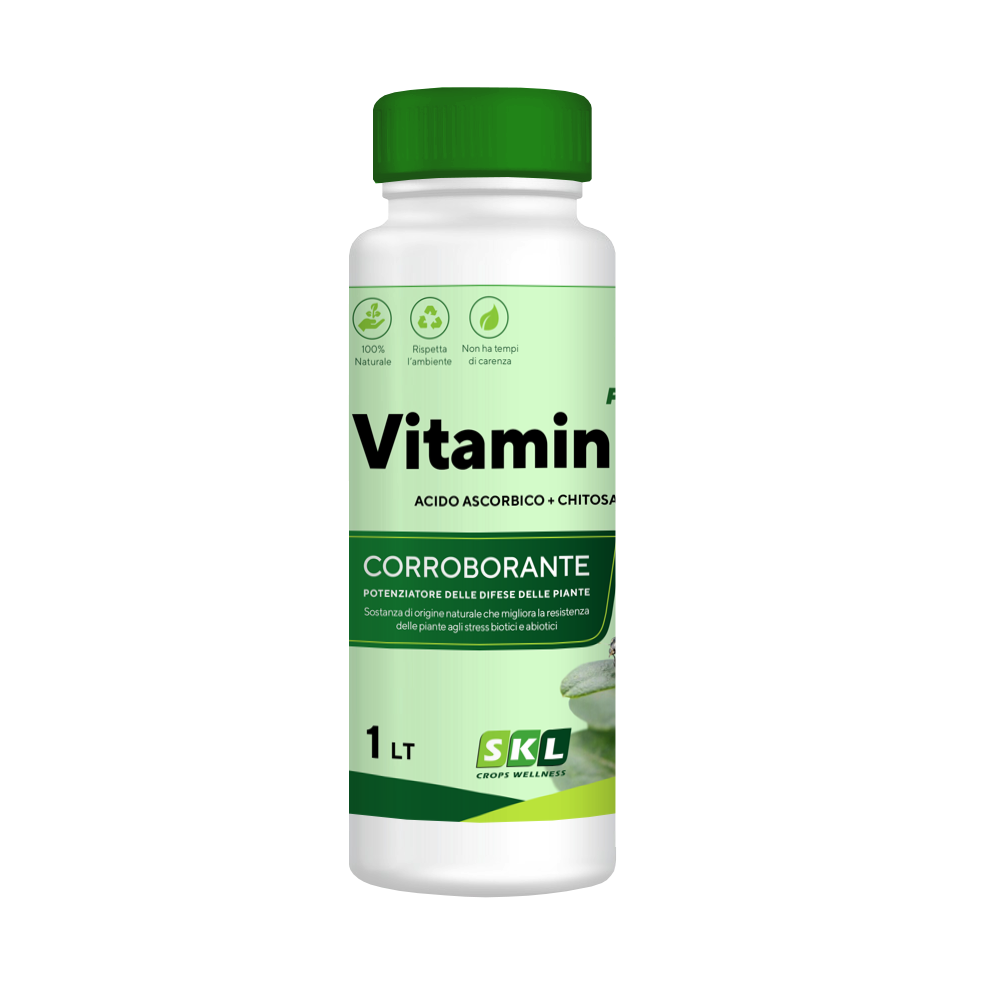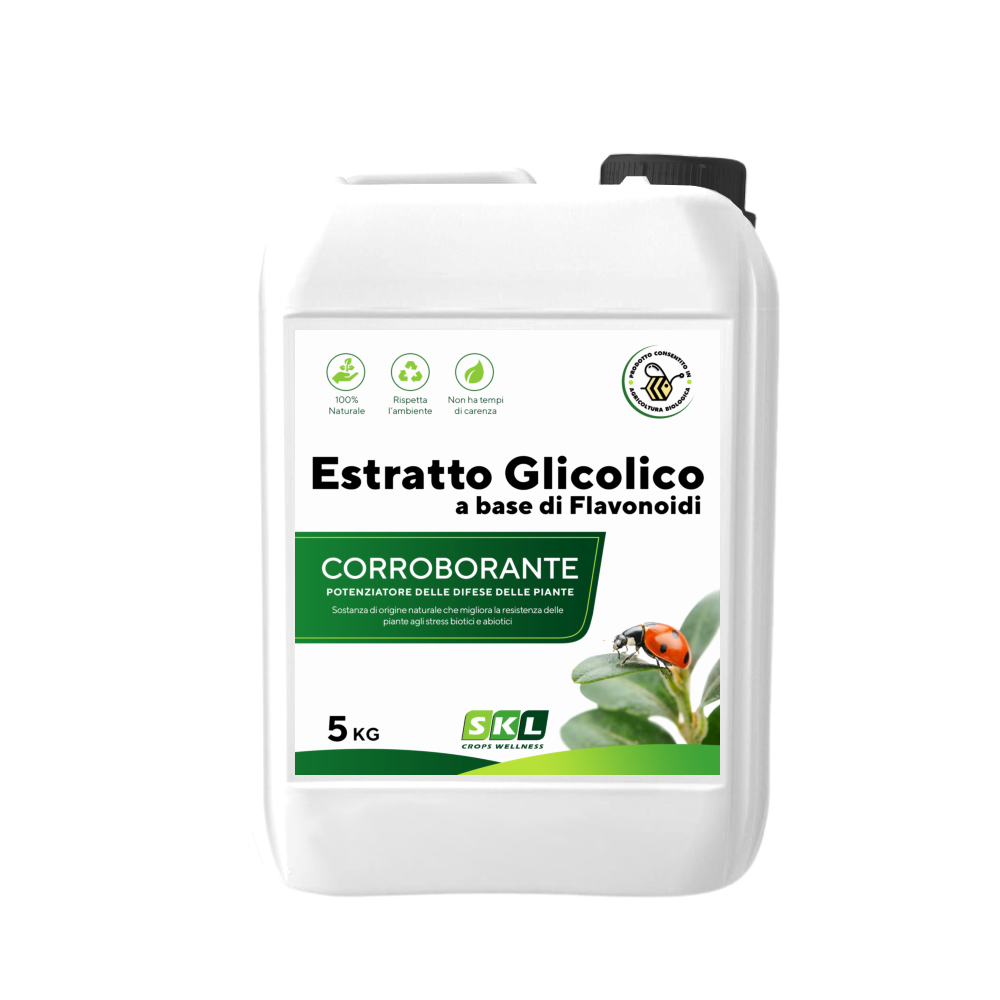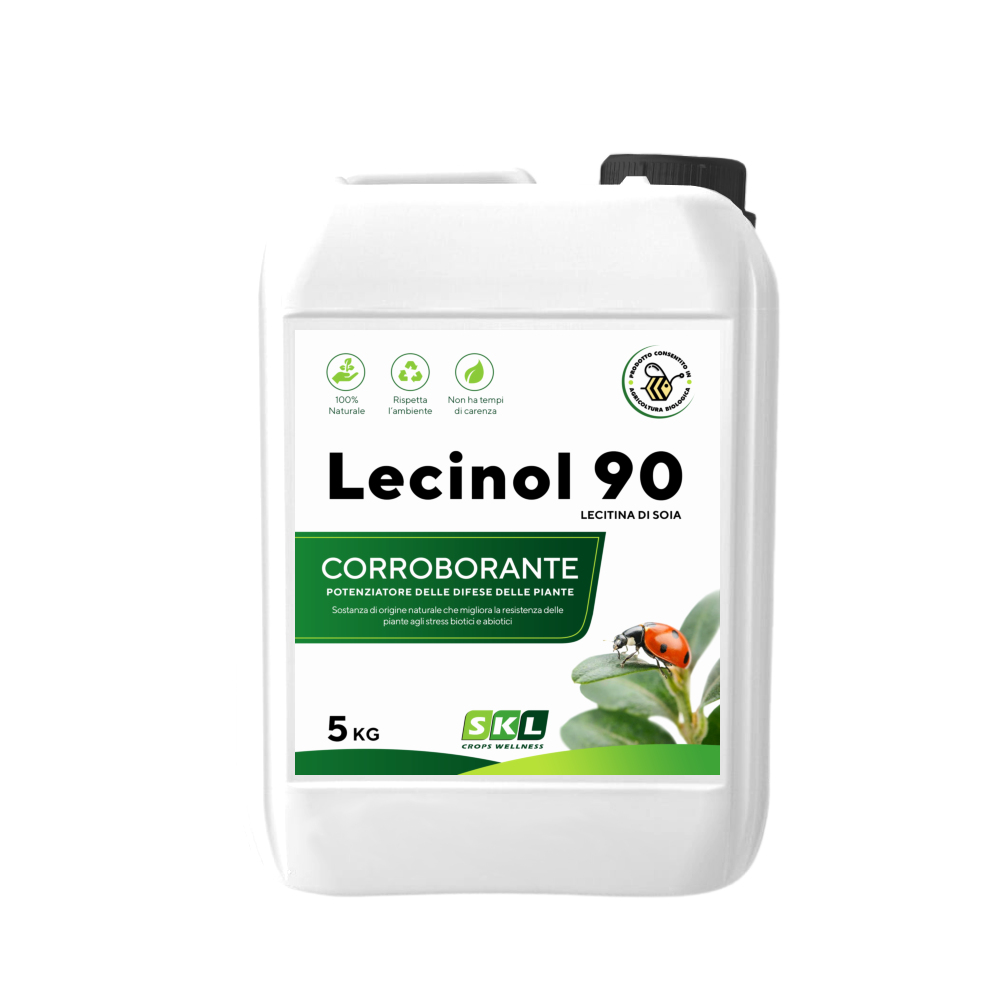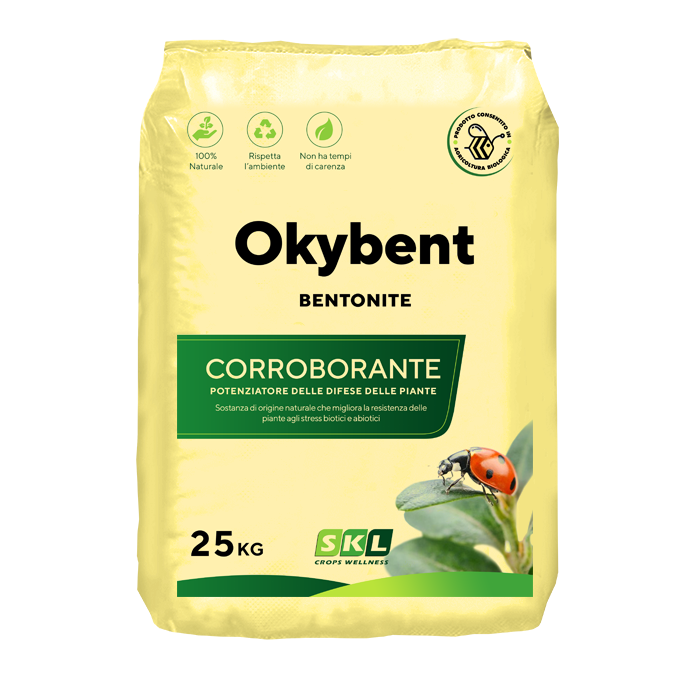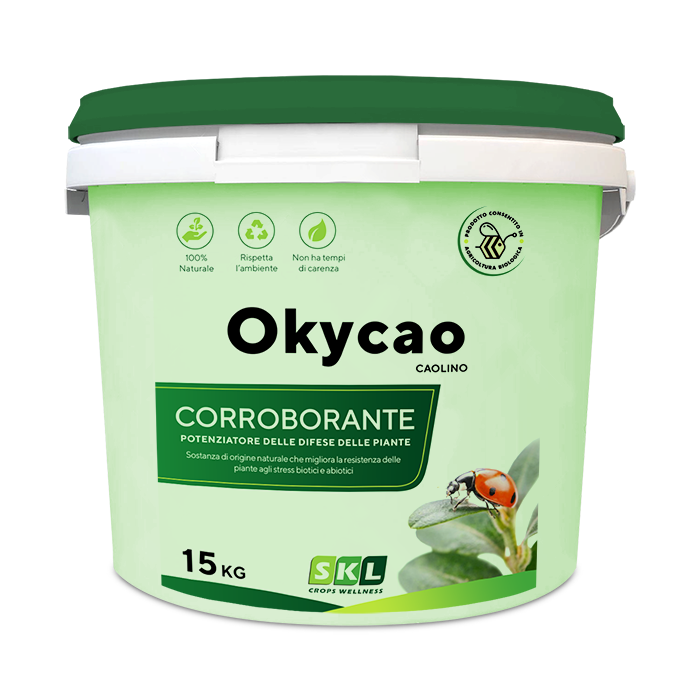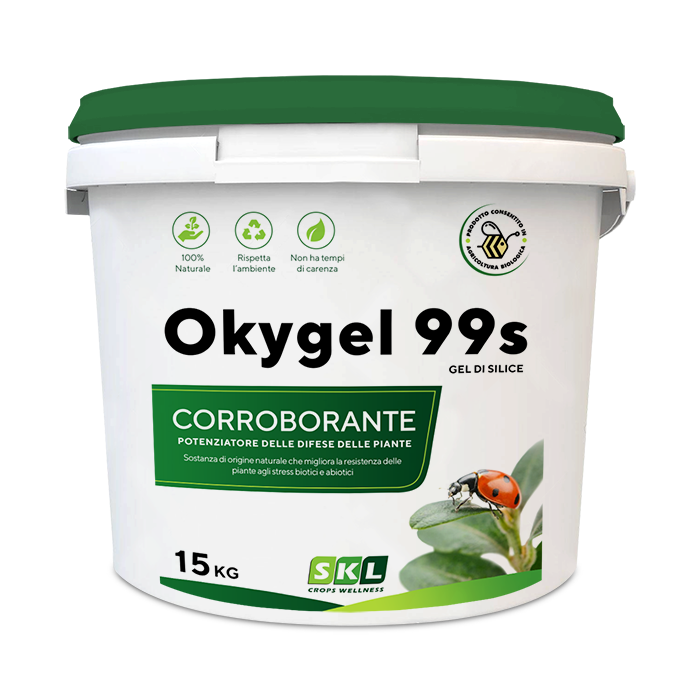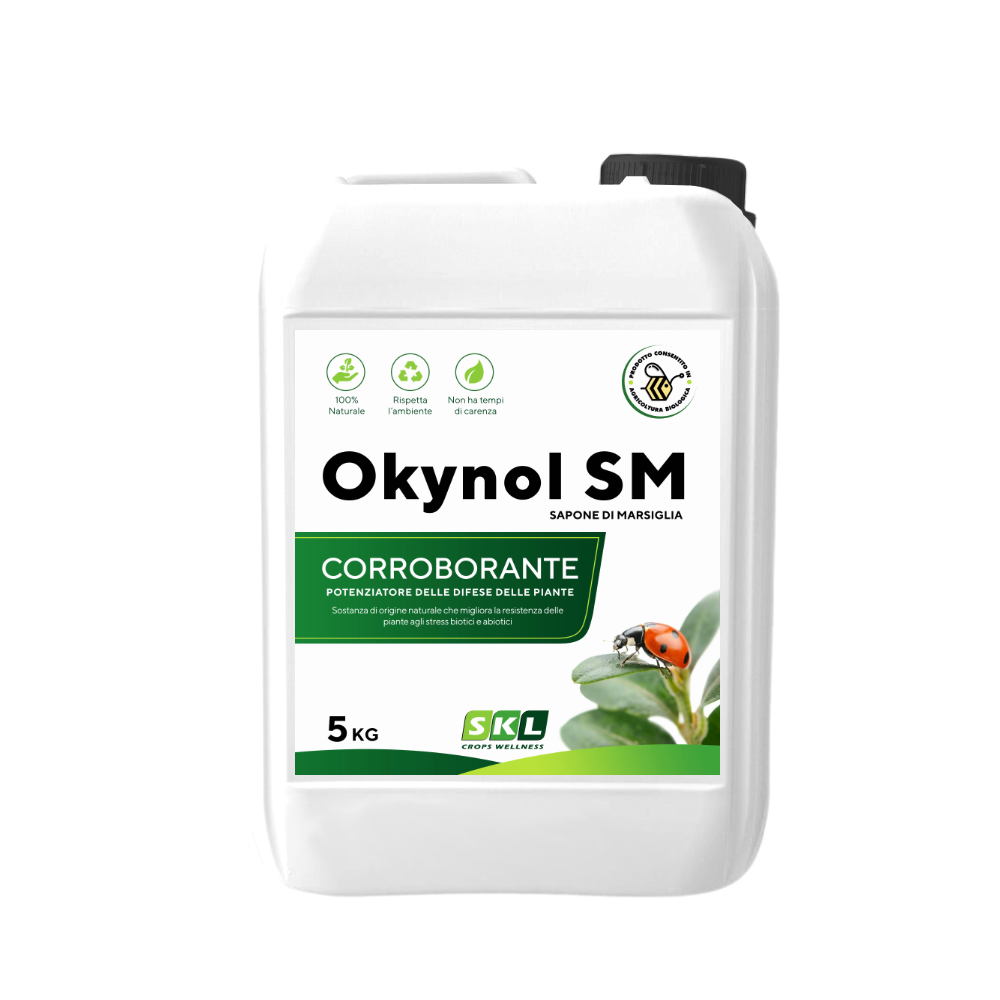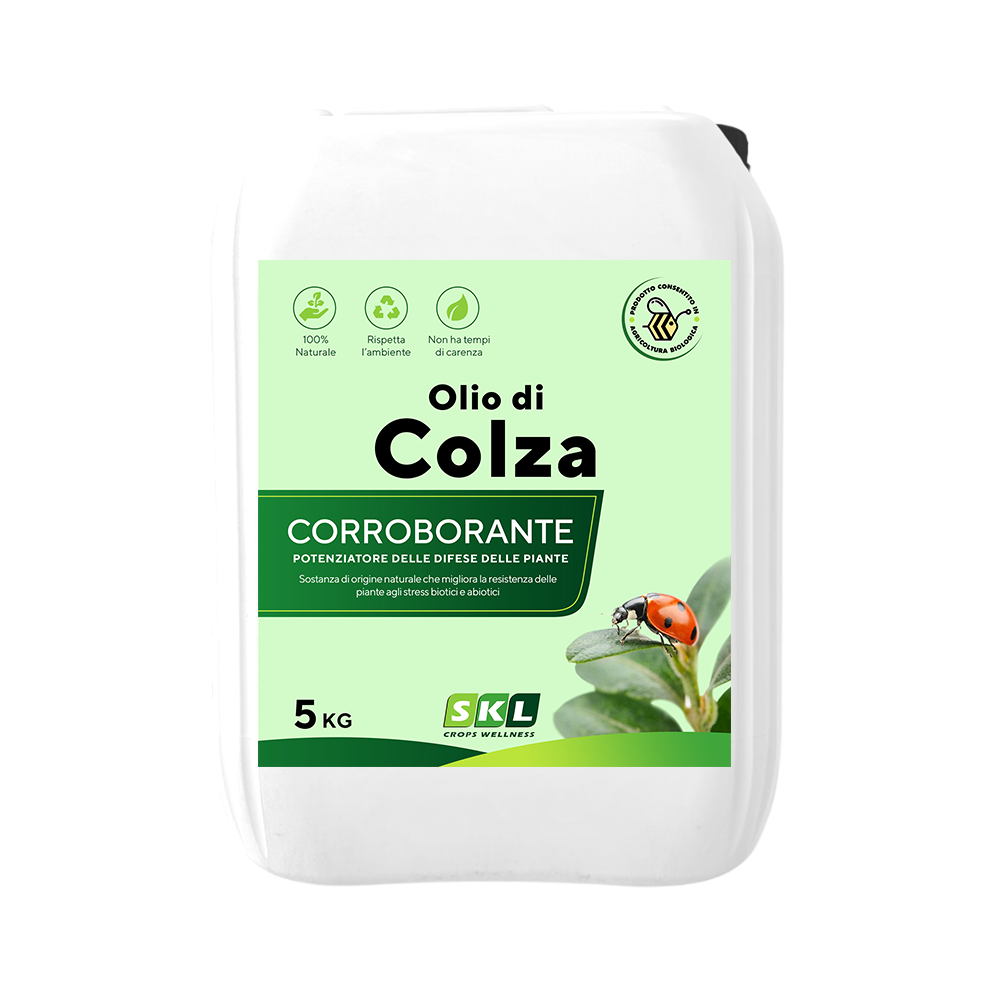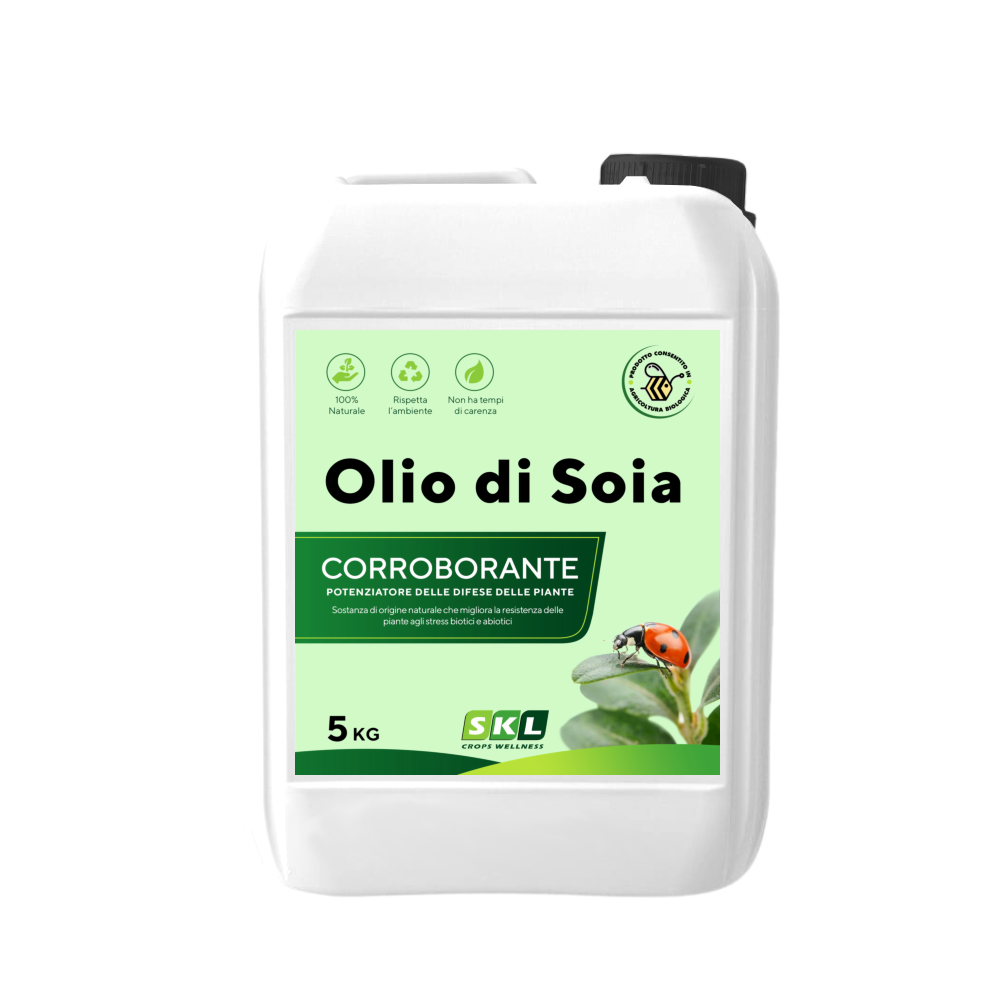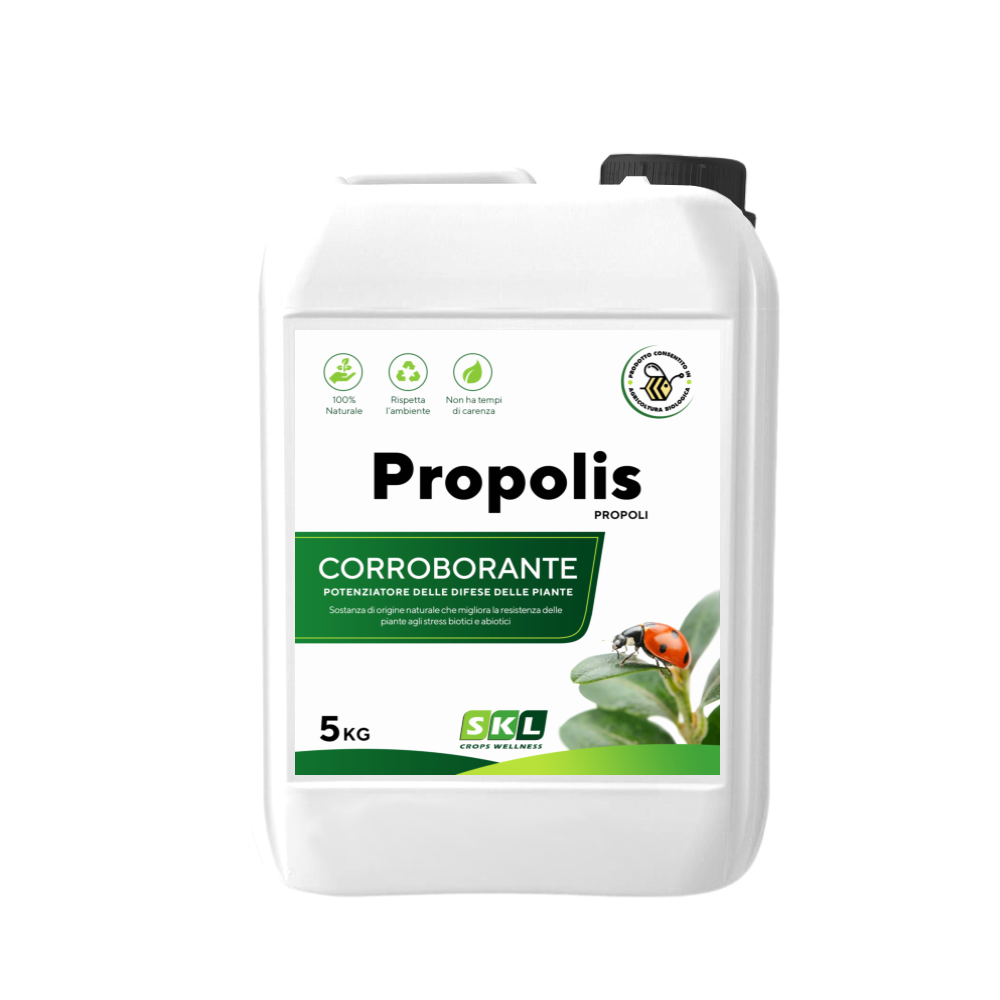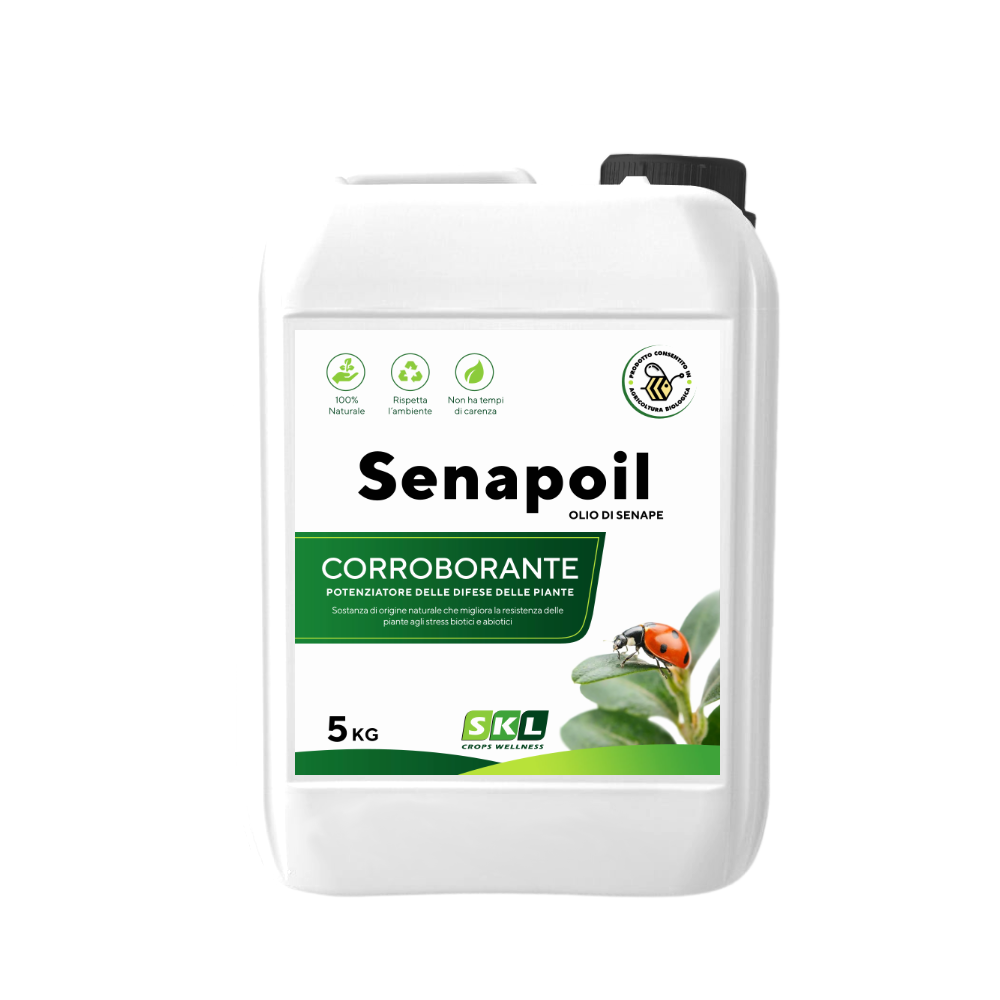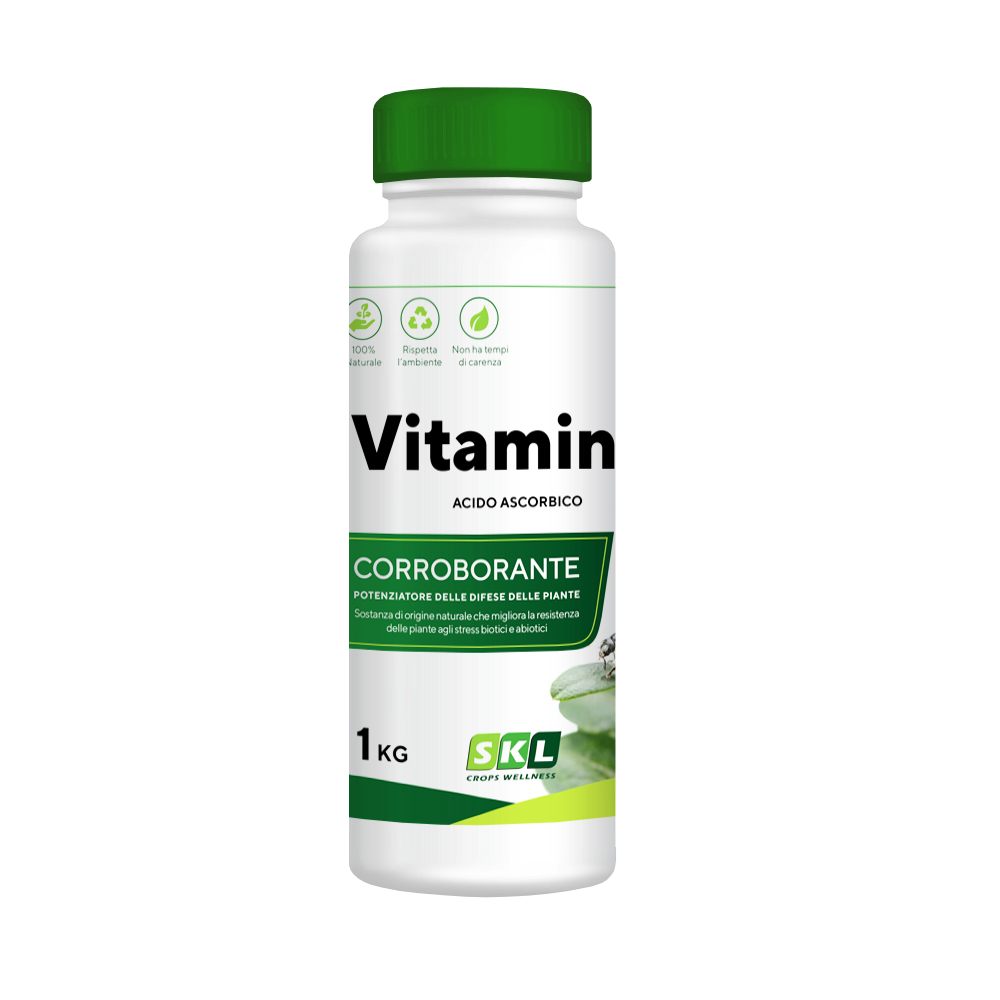Description
Vitamin C Plus is a formulation composed of Vitamin C and Chitosan, a natural polymer present in nature, which have a combined and synergistic action.
What is Chitosan used for in agriculture?
The Chitosan present in Vitamin C Plus, applied to crops both foliarly and for seed treatment, increases the levels of endogenous hormones, in particular indoleacetic acid (a very important growth hormone in plants, closely related to root development) and gibberellic acid (promoter of lateral shoot formation, growth regulator of fruits, inducer of mitosis, etc.) shortly after treatment.
What is Ascorbic Acid used for in agriculture?
Ascorbic Acid, or Vitamin C, is an essential compound for humans and plants. The presence of Vitamin C in the plant has a direct correlation with the growth rate and susceptibility to thermal (excessive irradiation and high temperatures) and water stress (drought). During these stresses, a high presence of Ascorbic Acid prevents issues related to photosynthesis and reduces harmful water loss from the leaves.
The combination of Chitosan and Vitamin C allows the plant to overcome biotic stress (fungi and insects) and abiotic stress (excessive irradiation and high temperatures).
Why use Ascorbic Acid in agriculture?
The Chitosan present in Vitamin C Plus is activated through a patented process that increases its positive charge and contact surface, consequently amplifying the bioprotective and fungistatic strength of the components in the product. Applied both foliarly and for seed treatment, it has been shown that Vitamin C Plus induces a series of beneficial responses in crops:
- direct antibiosis against crop pests and pathogens;
- increases the number of beneficial microorganisms for plant defense and growth;
- stimulates plant defenses against biotic stress;
- regulates plant growth, development, nutrition, and tolerance to abiotic stress.
Furthermore, it contributes to:
- maintaining the normal functioning of the immune system;
- normal energy metabolism; normal physiological functions;
- protecting cells from oxidative stress; reducing tiredness and fatigue;
- the amidation of certain peptides with hormonal action;
- the hydroxylation of lysine and proline by proline hydroxylase and lysine hydroxylase.
Dosage
| Crop | Dosage (kg/ha) |
|
Crop trees |
2 - 4 Dissolved in 500 - 800 L of water |
|
Industrial crops |
2 - 4 Dissolved in 500 - 800 L of water |
|
Vegetable crops |
2 - 4 Dissolved in 500 - 800 L of water |
|
Flower crops |
2 - 4 Dissolved in 500 - 800 L of water |
|
Lawn and golf courses |
2 - 4 Dissolved in 500 - 800 L of water |

